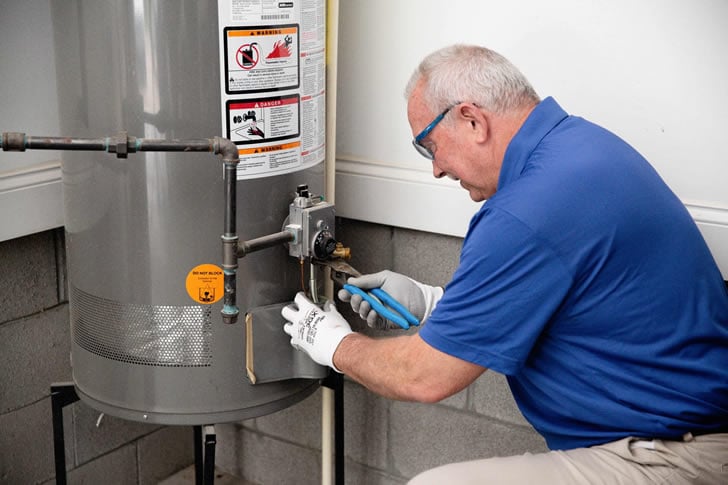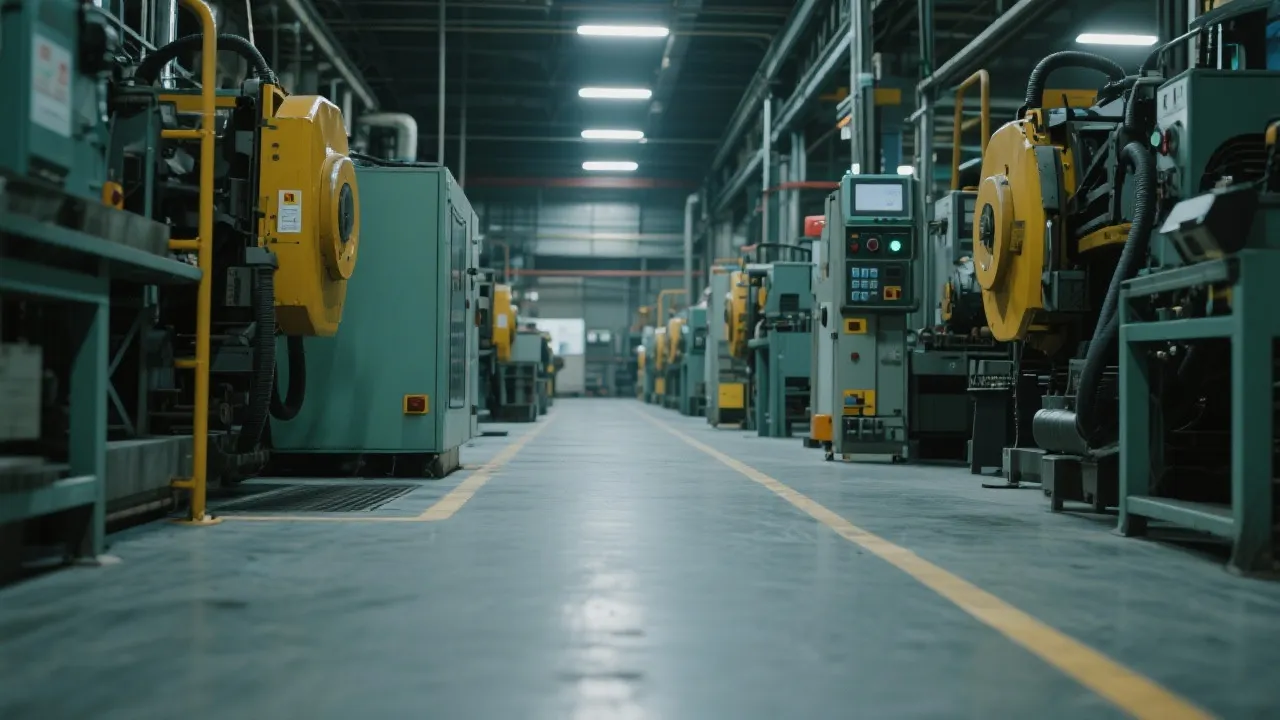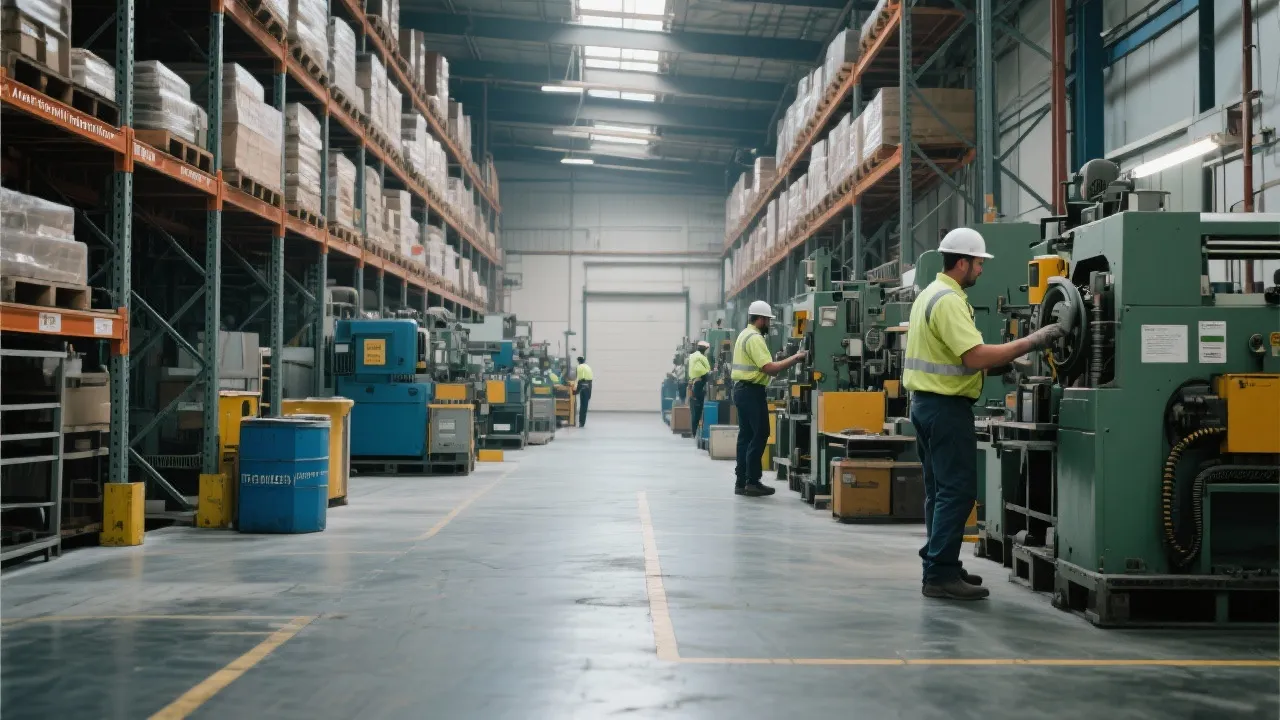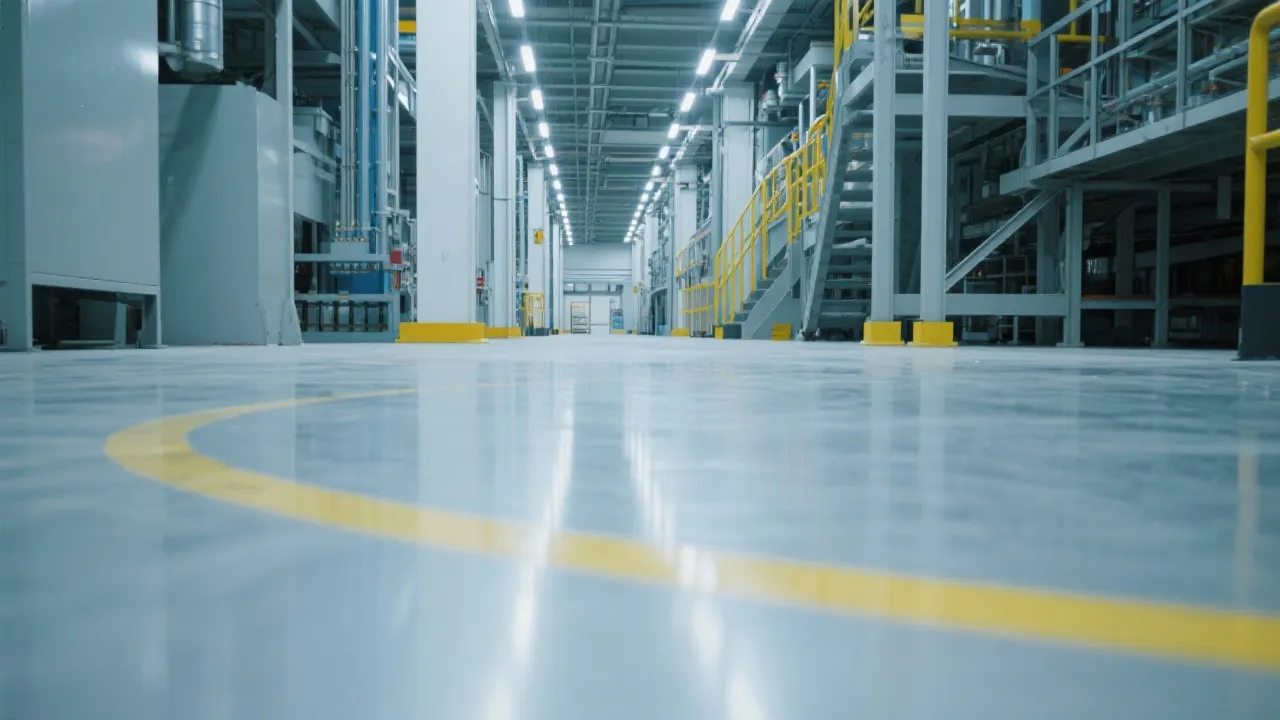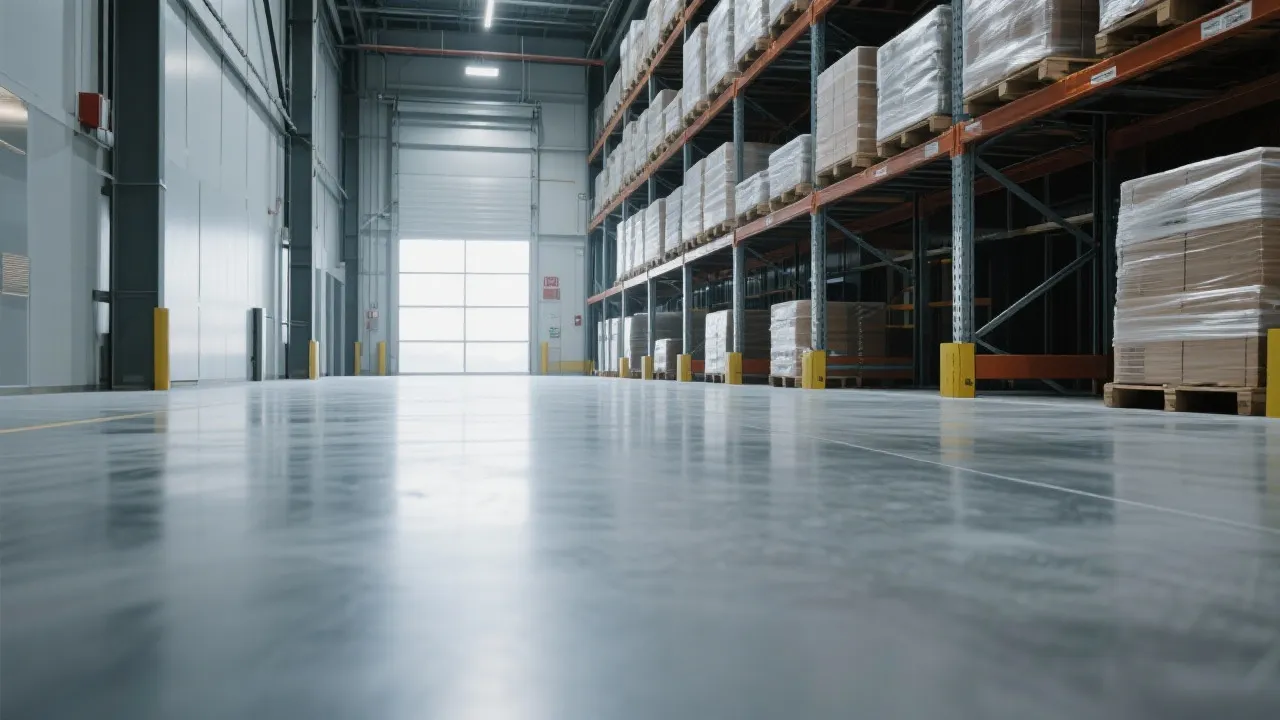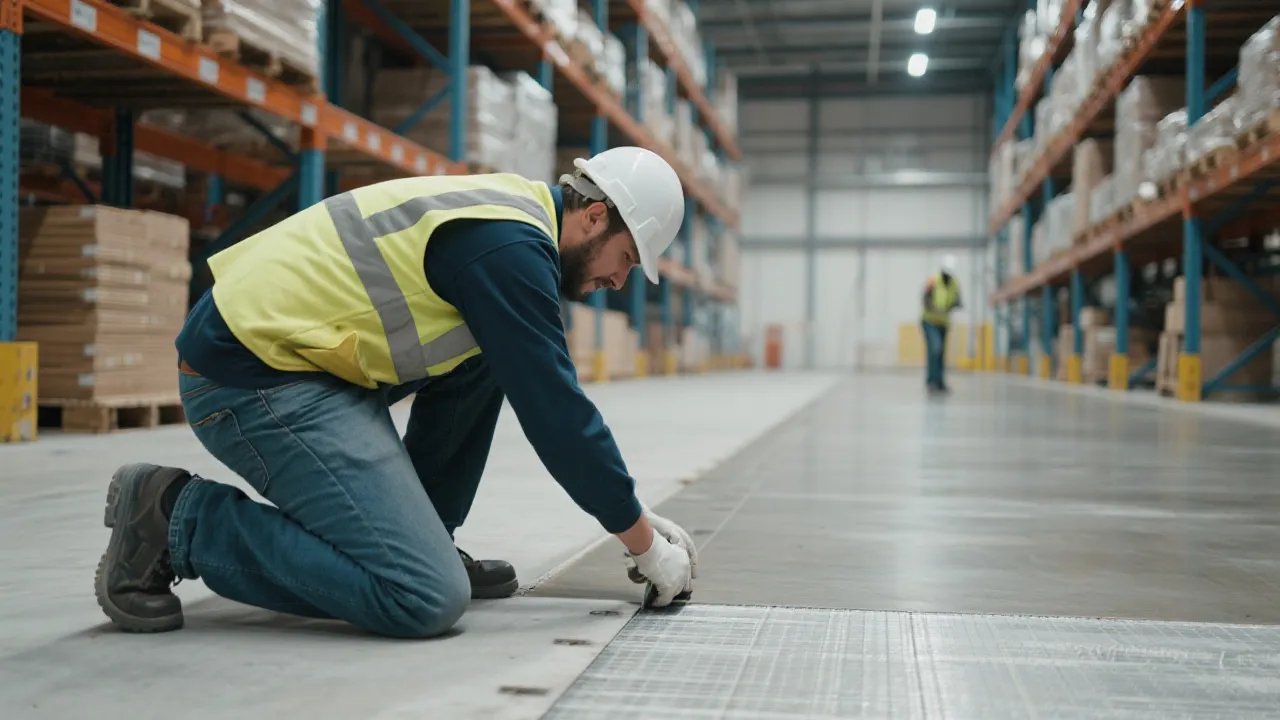A Guide to Industrial Flooring Solutions
Industrial floors are crucial for business operations, offering durability, safety, and versatility. Their applications range from warehouses to high-traffic manufacturing plants. Such floors must meet specific requirements, including resistance to chemicals and heavy loads, ensuring longevity and safety in industrial environments. This article explores various types of industrial floors and their benefits.
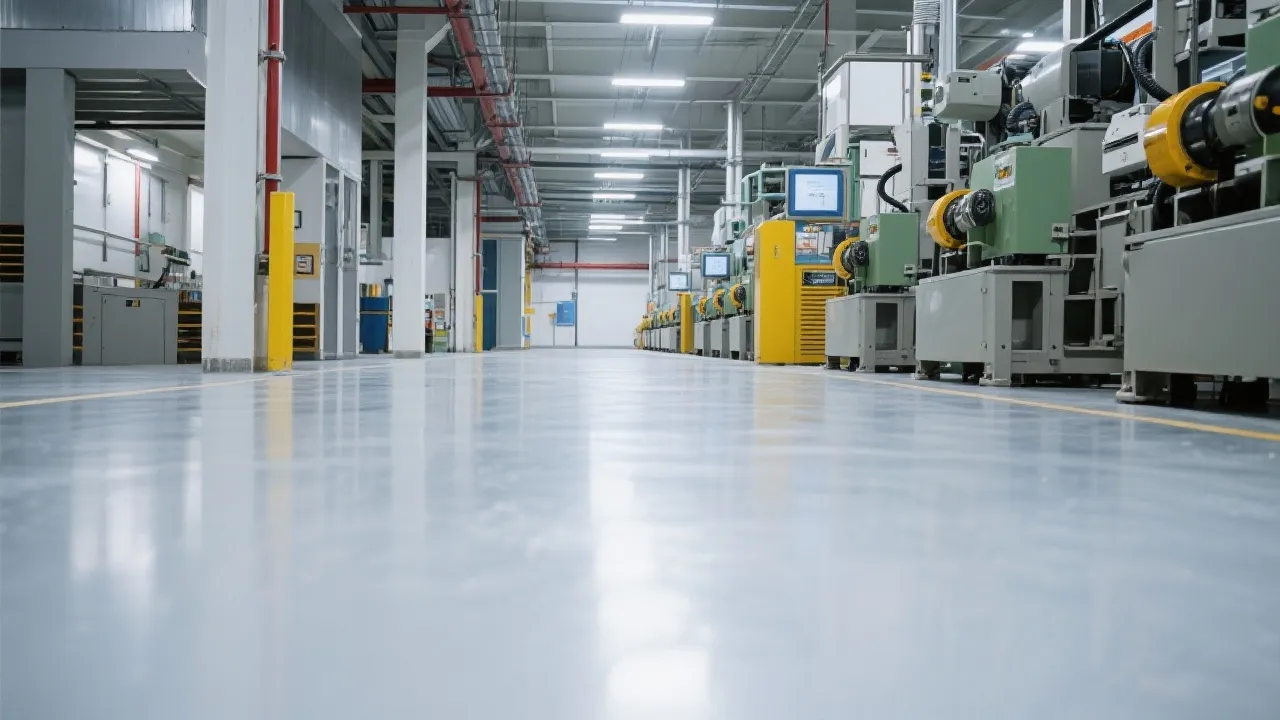
Understanding Industrial Flooring
Industrial floors are a vital component of manufacturing and storage facilities, providing a robust surface designed to withstand the rigors of daily operations. These facilities require floors that are not only durable but also safe and easy to maintain, making the choice of flooring a critical decision. In the context of modern industry, the flooring can influence everything from the safety of personnel to the efficiency of manufacturing processes. This importance brings the need for understanding various flooring options, their characteristics, and the implications of those choices.
Types of Industrial Floors
Several types of floors are typically used in industrial settings, each with its unique features and benefits. These include concrete floors, epoxy coatings, polyurethane finishes, and polished concrete, among others. Let's delve deeper into these options and their specific applications:
- Concrete Floors: Known for their strength and durability, concrete floors are a popular choice in industrial settings. They can be reinforced with steel or fibers to improve their load-bearing capacity and can be finished in various textures and colors. Concrete is resistant to fire and can also be treated with sealants and overlays for added protection against spills and abrasion. Its versatility means it can be tailored to various applications, from warehouses to production facilities.
- Epoxy Coatings: Applying an epoxy coating on concrete provides a seamless, chemical-resistant surface. Epoxy is ideal for areas that handle heavy machinery or chemical processes, offering both protection and aesthetic enhancement. The glossy finish of epoxy can improve light reflection, which is a significant benefit in terms of visibility in workspaces. Moreover, epoxy coatings can be customized with colors and patterns to delineate different areas of a facility, enhancing organization and workflow.
- Polyurethane Finishes: These are often used where additional flexibility and impact resistance are required. Polyurethane floors are resistant to abrasion and can handle temperature fluctuations better than epoxy. Their elastic properties make them a preferred choice for spaces that might experience humidity or temperature changes, such as food processing plants. Additionally, polyurethane systems can be installed with varying thicknesses to account for specific traffic loads and operational needs.
- Polished Concrete: Combining durability with aesthetics, polished concrete offers a glossy finish that is also easy to clean, making it suitable for high-traffic areas. This type of flooring not only lasts long under heavy loads but also gives a simple elegance to industrial spaces. Polishing processes can enhance the concrete's natural beauty, reducing the need for additional materials while achieving a sleek look suitable for retail spaces that also need to conform to industrial standards.
Benefits of Choosing the Right Flooring
Choosing the right flooring ensures durability, safety, and efficiency in industrial environments. Here are some expansive benefits of selecting appropriate industrial flooring:
- Longevity: Quality industrial flooring can last for decades, reducing the need for frequent repairs and replacements. The durability of high-quality materials means fewer interruptions to operations due to flooring failures, resulting in increased productivity and less downtime.
- Safety: Proper flooring reduces slip and fall accidents, providing a safer working environment. Safety is paramount in industrial settings, and investing in flooring with anti-slip properties or using textured surfaces can significantly minimize hazards for employees.
- Easy Maintenance: Industrial floors are designed for easy cleaning, which is critical to maintaining hygiene in food and pharmaceutical industries. The ease of maintenance not only saves on cleaning costs but also ensures the environment meets health and safety regulations.
- Comfort and Ergonomics: Good flooring can also contribute to employee comfort, reducing fatigue in environments where workers stand for extended periods. Certain flooring options, like cushioned polyurethane, can provide additional comfort that supports employee productivity.
- Cost-Effectiveness: While the initial investment may be higher for specific flooring types, their durability means they are often more cost-effective in the long run. Businesses save on replacement costs over time and can benefit from lower maintenance expenses when flooring is easier to clean and repair.
Key Considerations when Selecting Industrial Floors
When it comes to flooring selection, several factors should be taken into account to find the best match for your operations. Each consideration plays a crucial role in ensuring the flooring can cope with the specific demands placed upon it:
| Criteria | Importance |
|---|---|
| Load Capacity | Ensuring the floor can bear the weight of equipment and traffic is crucial. This includes understanding the types of vehicles that will operate on the surface, from forklifts to heavy machinery. |
| Chemical Resistance | Essential for facilities that handle chemicals, such as manufacturing plants and laboratories, to prevent degradation and damage that could lead to costly repairs or hazardous situations. |
| Durability | Select materials that offer longevity against wear and tear, particularly in high-traffic areas. This could involve evaluating various surface treatments and materials for their lifespan in an industrial context. |
| Cost | Budget considerations affect the choice between initial investment and long-term savings. Evaluating both upfront costs and potential future expenses linked to maintenance and replacement is essential. |
| Maintenance | Easy maintenance reduces downtime and maintenance costs, directly impacting operational efficiency. Facilities with rigorous cleaning demands, such as food processing plants, particularly benefit from low-maintenance options. |
| Surface Texture | Adequate texture is essential for traction and safety. Industrial flooring should be designed to provide enough grip to prevent slips, especially in environments where spills may occur regularly. |
| Thermal Properties | In environments with extreme temperatures, it's important to consider how flooring will handle heat exposure or cold, ensuring it won't crack or damage over time. |
FAQs
What is the best type of industrial flooring? The best type depends on the specific needs of the facility, including load, chemical exposure, and environmental conditions. Evaluating facility requirements against potential flooring solutions is essential for achieving the best outcome.
How long does industrial flooring last? With adequate maintenance, high-quality industrial floors can last for several decades. Regular care and timely repairs contribute significantly to flooring longevity.
Are industrial floors expensive? While the initial costs can be significant, the long-term durability and minimal maintenance requirements often result in cost savings. It's important to approach flooring investment with a long-term perspective.
How can I ensure my industrial flooring stays in good condition? Regular inspections and maintenance are crucial. Implementing a cleaning schedule, applying sealants, and addressing repairs promptly can extend the lifespan of the flooring significantly.
Can industrial flooring be customized? Yes, many industrial flooring options can be customized to meet specific needs, including color selections, surface textures, and varying thicknesses depending on usage demands.
In summary, choosing the right industrial flooring is crucial for the efficiency and safety of any industrial operation. By focusing on key factors such as durability, safety, and maintenance, businesses can ensure their floors meet the demanding requirements of their environment. Additionally, understanding the nuances of different flooring types and their applications can empower business owners and facility managers to make informed decisions that enhance operational efficiency and worker safety. As industries evolve and change, continuous education on advancements in flooring technology will be essential to keep pace with new demands and maintain a competitive edge.
Emerging Trends in Industrial Flooring
The industrial flooring sector has witnessed significant innovation and advancement in recent years. As industries strive to embrace greener practices and improve workplace safety, the development of new materials and technologies in industrial flooring continues to grow. Let’s explore some of the emerging trends in industrial flooring:
- Sustainability: The push for eco-friendly materials has led to an increased focus on sustainable flooring options. Manufacturers are now offering flooring solutions made from recycled materials or low-VOC (volatile organic compounds) formulations which not only minimize environmental impact but also enhance indoor air quality.
- Smart Flooring: As technology advances, the integration of smart features into flooring is becoming more common. Sensors embedded within flooring can monitor weight loads, detect spills, or even provide data on foot traffic. This information can be invaluable for managing operations and maximizing safety.
- Anti-Microbial Flooring: The rise in hygiene concerns, particularly in light of recent global events, has amplified the demand for anti-microbial flooring options. These surfaces are engineered to inhibit the growth of bacteria and viruses, making them ideal for healthcare, food processing, and pharmaceutical environments.
- Slip-Resistant Surfaces: With safety as a paramount concern, companies are increasingly looking for flooring materials that offer enhanced traction. Advances in texture technologies mean that slip-resistant flooring can be aesthetically pleasing while maintaining safety standards.
- Modular Flooring: Easily installable and replaceable modular flooring solutions are gaining popularity for their convenience. They allow for rapid changes in the facility layout and can be patched with minimal disruption to operations, making them suitable for industries that experience rapid growth or change.
Installation Considerations
Installing industrial flooring goes beyond just selecting the right materials. The installation process itself is crucial to the longevity and performance of the flooring system. Here are important considerations to keep in mind:
- Subfloor Preparation: Proper preparation of the subfloor is critical. Any debris, cracks, or moisture present must be addressed before installation to ensure a solid foundation for the new flooring.
- Temperature and Humidity Control: Installation conditions must be monitored; excessive humidity or extreme temperatures can affect adhesives and the overall performance of the flooring system.
- Choosing Experienced Installers: Working with experienced contractors familiar with industrial flooring systems ensures the job is done right, reducing the risk of future problems.
- Correct Adhesive Use: The use of the proper adhesive materials for the specific type of flooring being installed is essential. Different flooring types and conditions may require specific adhesives for optimal performance.
- Seamless vs. Seamed Installation: Depending on the flooring type, deciding between seamless installation for waterproofing and ease of cleaning versus traditional seamed methods for cost considerations can affect the overall performance of the flooring.
Conclusion
Choosing the right industrial flooring is pivotal for the efficiency and safety of any industrial operation. By assessing the unique requirements of the facility, understanding the various types of flooring available, and remaining cognizant of industry trends, businesses can make informed decisions that drive both performance and safety. The ongoing evolution of flooring technology means that staying updated with new innovations will be crucial for maximizing operational efficiency and ensuring workplace safety in the ever-changing landscape of industrial operations. As businesses continue to evolve, the integration of new materials and technologies will play an essential role in ensuring facilities can meet the demands of modern industry while also prioritizing sustainability and worker health.
Incorporating the best industrial flooring practices not only optimizes function but also reflects a commitment to quality and safety that can benefit businesses in the long term, fostering a positive work environment and maintaining compliance with industry standards. By all measures, meticulous consideration of flooring in industrial environments is a crucial cornerstone of operational success.


